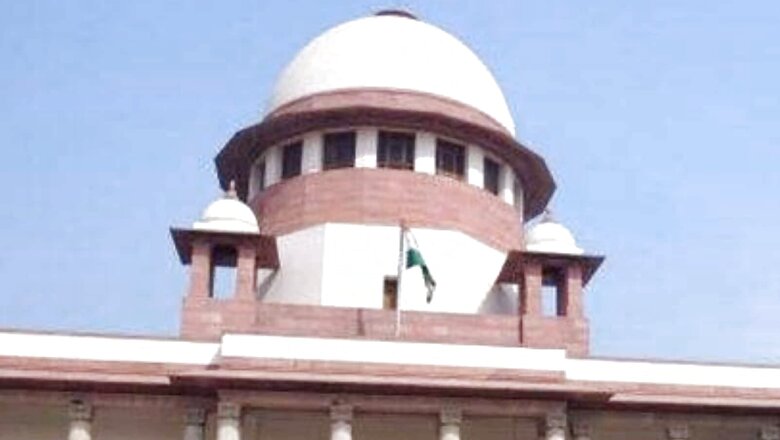
views
A man, who was sentenced to death for murdering his two siblings and a nephew in 2015 in a property dispute, got a relief on Thursday from the Supreme Court which converted his capital punishment to life imprisonment for 30 years. The apex court observed it cannot be said that “there is no possibility of the appellant (convict) being reformed and rehabilitated, foreclosing the alternative option of a lesser sentence and making the imposition of death sentence imperative.” A three-judge bench headed by Justice L Nageswara Rao said in view of the settled legal position, it is the bounden duty of the court to take into consideration the probability of the accused being reformed and rehabilitated.
We are therefore inclined to convert the sentence imposed on the appellant (Bhagchandra) from death to life. However, taking into consideration the gruesome murder of two of his siblings and one nephew, we are of the view that the appellant deserves rigorous imprisonment of 30 years, said the bench, also comprising Justices B R Gavai and B V Nagarathna. The top court delivered its judgement on an appeal filed by the convict who had challenged the December 2017 verdict of the Madhya Pradesh High Court.
The high court, while affirming the death penalty awarded to the convict, had dismissed his appeal challenging the judgment of the trial court which had convicted him for the offences, including under section 302 (murder) of the Indian Penal Code, and sentenced him to capital punishment. In its 34-page verdict, the apex court noted that it is the duty of the court to take into consideration not only the crime but also the criminal, his state of mind, and his socio-economic conditions.
The bench said the trial court had convicted the appellant and imposed the death penalty on the very same day. From the judgement of the trial court as well as the high court, it does not appear that the courts below have drawn a balance sheet of mitigating and aggravating circumstances, it said. The bench also said the state has not placed on record any evidence to show that there is no possibility concerning reformation or rehabilitation of the convict. It said the appellant comes from a rural and economically poor background and the certificate issued by the jail superintendent shows that his conduct during incarceration has been satisfactory. The bench, while partly allowing the appeal, affirmed his conviction in the case. However, the death sentence awarded to the appellant is converted to life imprisonment for a period of 30 years, it said.
The bench, which dealt with the arguments advanced in the case, noted that minor discrepancies in the evidence of prosecution witnesses are not of such a nature which would persuade the court to disbelieve their testimonies. It is further to be noted that the witnesses are rustic villagers and some inconsistencies in their depositions are bound to be there, it said. The bench, while referring to an earlier judgement of the top court, said this court had held that in the case of rustic witnesses, some inconsistencies and discrepancies are bound to be found. It has been held that the inconsistencies in the evidence of the witnesses should not be blown out of proportion. To do so is to ignore hard realities of village life and give undeserved benefit to the accused, it noted.
It has been held that the evidence of such witnesses has to be appreciated as a whole. A rustic witness is not expected to remember every small detail of the incident and the manner in which the incident had happened, the court noted in its verdict. The lawyer, appearing for the convict, argued in the top court that the case against him was a fabricated one and the evidence on record does not establish his guilt beyond a reasonable doubt.
.
Read all the Latest India News here




















Comments
0 comment